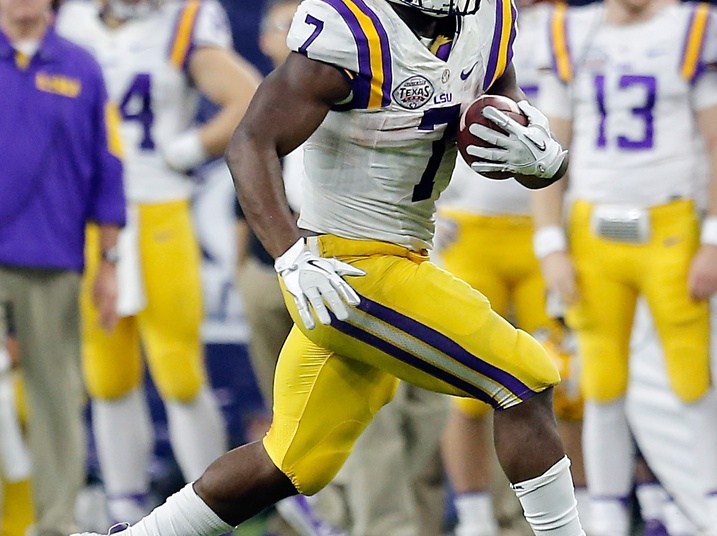
LSU not worrying about Leonard Fournette's ankle injury
BATON ROUGE, La. — With Leonard Fournette ailing from a sprained ankle and the season opener against Wisconsin just over a couple of weeks away, there’s reason for LSU’s offense to be a little concerned.
After all, without its Heisman Trophy candidate, the offense, on paper, shouldn’t be as good.
But talk to his teammates, and they aren’t worried for a couple of reasons.
Reason one, from quarterback Brandon Harris:
“He’s a different breed,” he said of Fournette. “If he says he’ll be back, he’ll be back.”
And by all accounts, Fournette is telling folks that he will be back in time for the Sept. 3 season opener at Lambeau Field.
But what if he isn’t?
Harris, again, isn’t that worried for a second reason.
“That guy right over there,” he said, gesturing toward where sophomore running back Derrius Guice, Fournette’s backup, was being interviewed. “He’s special.”
LSU is in an unusual position to be able to withstand an injury to its best player perhaps more than it can withstand a “nick,” as head coach Les Miles puts it, to other positions.
Fournette was a workhorse as a sophomore, finishing third in the nation with 1,953 rushing yards on 300 carries and leading the nation in yards per game at 162.8. But Guice was a more than competent backup, gaining 436 yards on 51 carries. His 8.5 yards per carry were two yards better than Fournette’s average, keeping in mind the fact that he had significantly fewer carries.
Add in junior Darrel Williams, who was second among LSU’s running backs in carries (60 carries, 296 yards), and LSU is well-equipped to at least temporarily replace Fournette’s production if it comes to that.
Guice brings a different skill set from Fournette, who is noted for being a bigger, taller back who recalls the days when bigger backs like Herschel Walker and Bo Jackson dotted the “I” formation in the SEC with power and straight-ahead speed.
Guice is built like, and runs more like, modern backs in an era where players at the position are asked to run parallel to the line of scrimmage, make a read on the blocks, then make quick cuts to where the hole is. Generously listed at 5-foot-11, and powerfully built at 212 pounds, Guice is low to the ground and able to make quick cuts while his low center of gravity makes him hard to bring down.
At 6-foot-1, 233 pounds, Williams is built more like Fournette, just without the breakaway speed.
LSU’s fourth back, sophomore Nick Brossette, was a highly regarded recruit coming out of high school, and the Tigers have an intriguing fifth option in Fournette’s younger brother, Lanard Fournette.
In many ways, LSU can better afford a banged-up Fournette than, say, a banged up Malachi Dupre at wide receiver. The Tigers only have two receivers who have caught a pass in a game (Dupre and Travin Dural). LSU also isn’t particularly deep at safety, so one could argue that an injury to preseason All-American safety Jamal Adams might be more harmful to the Tigers than losing Fournette.
But not having Fournette hurts in more ways than just his production, as Guice explained.
“We feed off his energy,” Guice said. “It’s kind of slow right now, but we’ll pick it up. We’ve got to have energy regardless. It does feel weird. I’m used to having him get me hyped up and pumped up.”
Fournette suffered the ankle injury at Tuesday’s practice. Head coach Les Miles said he left practice in a walking boot.
“It was a scary moment,” Harris said of the injury. “Leonard means a lot to our team.”
But there is no doom and gloom in the locker room, at least coming from Fournette.
“He’s laughing and playing around like he normally does,” Harris said. “He’ll be fine.”
